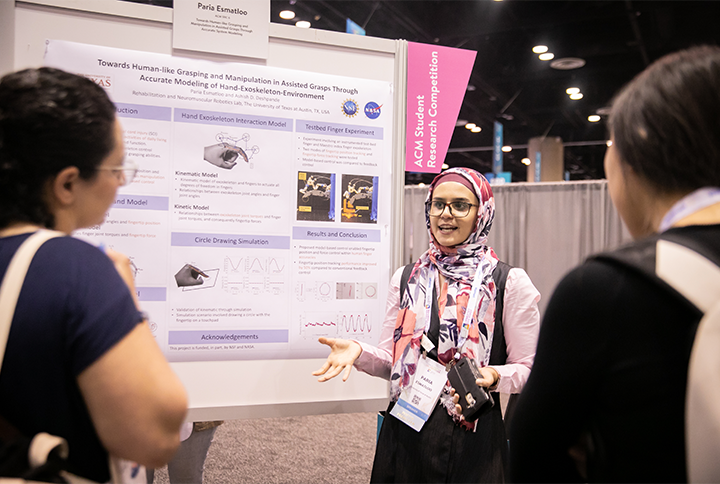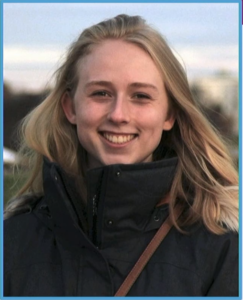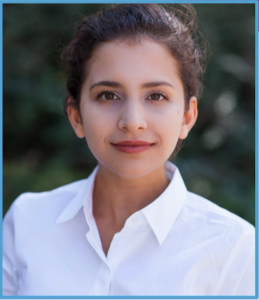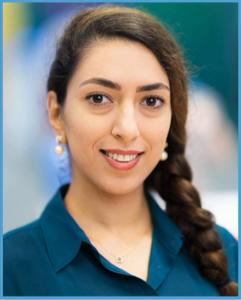2020 ACM Student Research Competition Winners

The ACM Student Research Competition is an internationally recognized contest where undergraduate and graduate students present their original research. At vGHC, a panel of judges selected three undergraduate students and three graduate students as the winners, all of whom received a cash prize for their incredible work. The top undergraduate student and top graduate student will also advance to the Grand Finals.
Undergraduate Winners
|
|
Madeline BurbageSchool: Williams College in Massachusetts, USA Poster title: A Hardware Engine for Generating Number-Theoretic SequencesAdaptability in our devices is key in facing new demands like those sparked by COVID-19. This work exhibits the process of situationally accelerating functions through translation to hardware, using open-source tools and reconfigurable devices. Our implementation of a combinatorial sequence generator for a RISC-V processor shows how a reasonable translation process leads to significant speedup. |
|
|
Marina ShehzadSchool: Computer Science at Habib University in Karachi, Pakistan Poster title: Neural Style Transfer for Personalized Audio Stories Urgent safety measures imposed due to COVID-19 have caused many people to be remotely stranded, away from loved ones. This work presents a CNN based neural style transfer approach to allow stories to be narrated in parents voices given a sample recording. User audios are converted to spectrograms, the style of which is transferred to the spectrogram of a base voice narrating the story. |
|
|
Serena XiongSchool: University of Michigan – Ann Arbor, USA Poster title: Optimizing for Fairness in Recidivism Prediction Instruments The risk of recidivism is considered when sentencing criminal defendants. While Machine Learning algorithms have been deployed to calculate this risk, the racial fairness of these algorithms is unclear. Replicating prior work, we evaluate different definitions of fairness. We additionally demonstrate how racially-aware predictors could be used to achieve fairness with minimal effects on accuracy. |
Graduate Winners
|
|
Mandana SaebiSchool: University of Notre Dame in Indiana, USA Poster title: Deep Reinforcement Learning for Heterogeneous Relational Reasoning in Knowledge Graphs Relational reasoning over Knowledge Graphs (KG) has become popular due to a variety of applications such as question answering and information retrieval, which are critical for providing easy access to accurate information in times of crisis, such as the COVID pandemic. In this work, I address this problem by taking a reinforcement learning approach for efficient path-based reasoning over KGs.
|
|
|
Niveditha KalavakondaSchool: the University of Washington in Seattle, USA Poster title: Concurrent segmentation and tracking of surgical instruments Computer-assisted surgery has evolved with the advancing technology to augment a surgeon’s ability to administer surgical procedures. It assists in decreasing the invasiveness of surgical procedures and improving safety and accuracy. This talk will provide an overview of the work in computer vision and surgical robotics that the author and her colleagues have done in CAS at the BioRobotics Lab. |
|
|
Farzaneh KhoshnevisanSchool: North Carolina State University in Raleigh, USA Poster title: Variational Recurrent Neural Network for Septic Shock Early Prediction Septic shock is the most severe stage of Sepsis that has a high mortality rate. However, timely diagnosis and rapid treatment can increase the chance of survival. The Global Sepsis Alliance have announced that COVID-19 can lead to sepsis. In this study, we demonstrate the superiority of Variational Recurrent Neural Network (VRNN) in early prediction of septic shock up to 48 hours before the onset.
|






